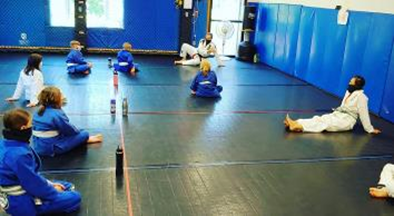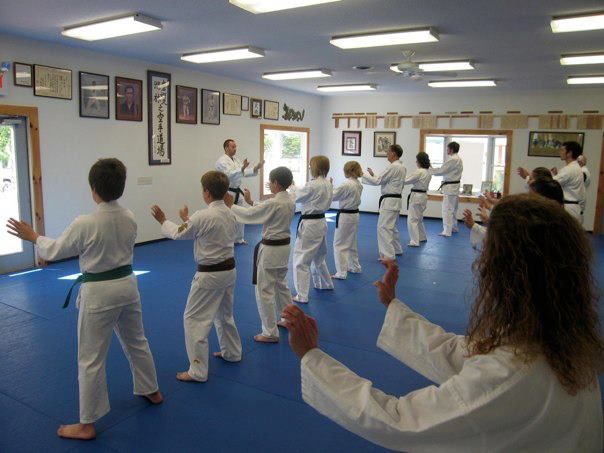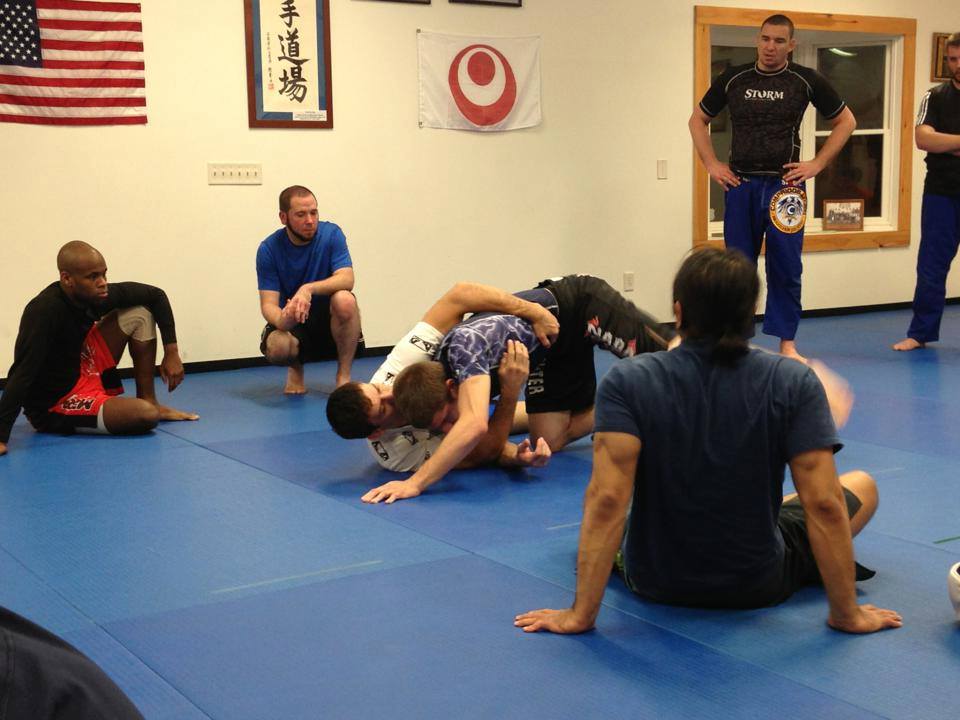
As long as we follow intelligent strategies to minimize our risks, we can make that work. Our current safety measures include social distancing, temperature checks, face coverings, limited class sizes and durations, controlled foot traffic, positive ventilation, extensive cleaning and sanitizing, and activities appropriate to the situation. We also closely monitor the coronavirus cases in the area (which are extremely low), and require students feeling ill or returning to the area after travelling to refrain from attending classes until they are safe.
Each of our classes have been modified to fit the current situation. Each martial art offered presents unique challenges specific to the way it’s usually practiced. So, right now our Uechi-Ryu Karate classes consist of individual drills like calisthenics, hojo undo, kata practice, and ‘virtual’ two-person exercises. Our Jiu-jitsu classes consist of calisthenics and conditioning, various fundamental drills, and work with ‘grappling dummies’ including throws, escapes, positioning and submissions. For Muay Thai we are focusing on general conditioning, variations of shadow boxing, individual drills, and combinations on punching bags. We’re mostly doing ‘bodyweight exercises in our Strength & Conditioning classes, and our MMA trainings consist of roadwork and general conditioning.
Although it is a bit more challenging to train under these conditions, many people are content to train differently rather than not train at all. This requires a mental shift to accept a new type of training, in spite of possibly training a certain way for many years. Staying optimistic and focusing on the positive aspects of things is also key in making that work. Once we have a positive outlook and accept the new challenge, the rest is easy, and training and learning can continue.
In reality, there are many good things about training differently in your chosen martial art. Being more isolated in class provides the opportunity to focus more on the techniques and strategies of our art. Learning to perform well in ‘virtual’ partner drills, and working with targets or dummies allows us to explore the moves without concern about any risk to a partner. Even having to follow multiple safety measures requires us to be more mindful about how we’re doing things, which is one of the most important life skills that we can learn. In the end, being taken out of our ‘comfort zone’ and learning to adapt is amazing mental training.
As of now, we are waiting for the Governor’s office to provide more information and guidance on the duration of this initial phase and details on what follows. Of course, we will keep you up to date as more information becomes available. For now, we are just happy that we can continue to provide classes and see people enjoy the training that they love.



 RSS Feed
RSS Feed